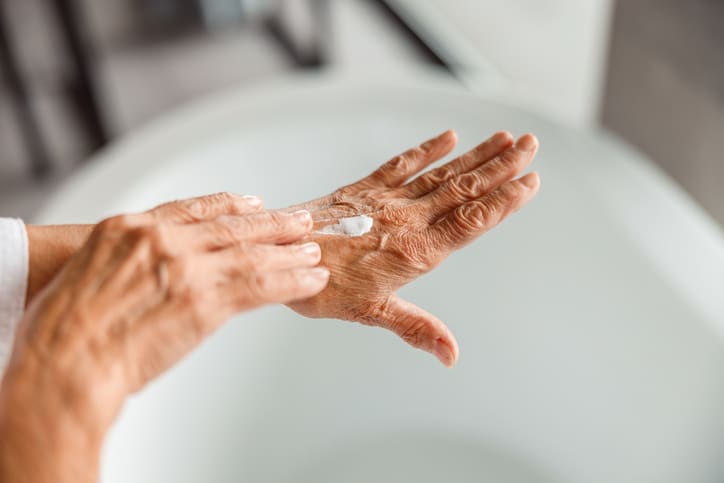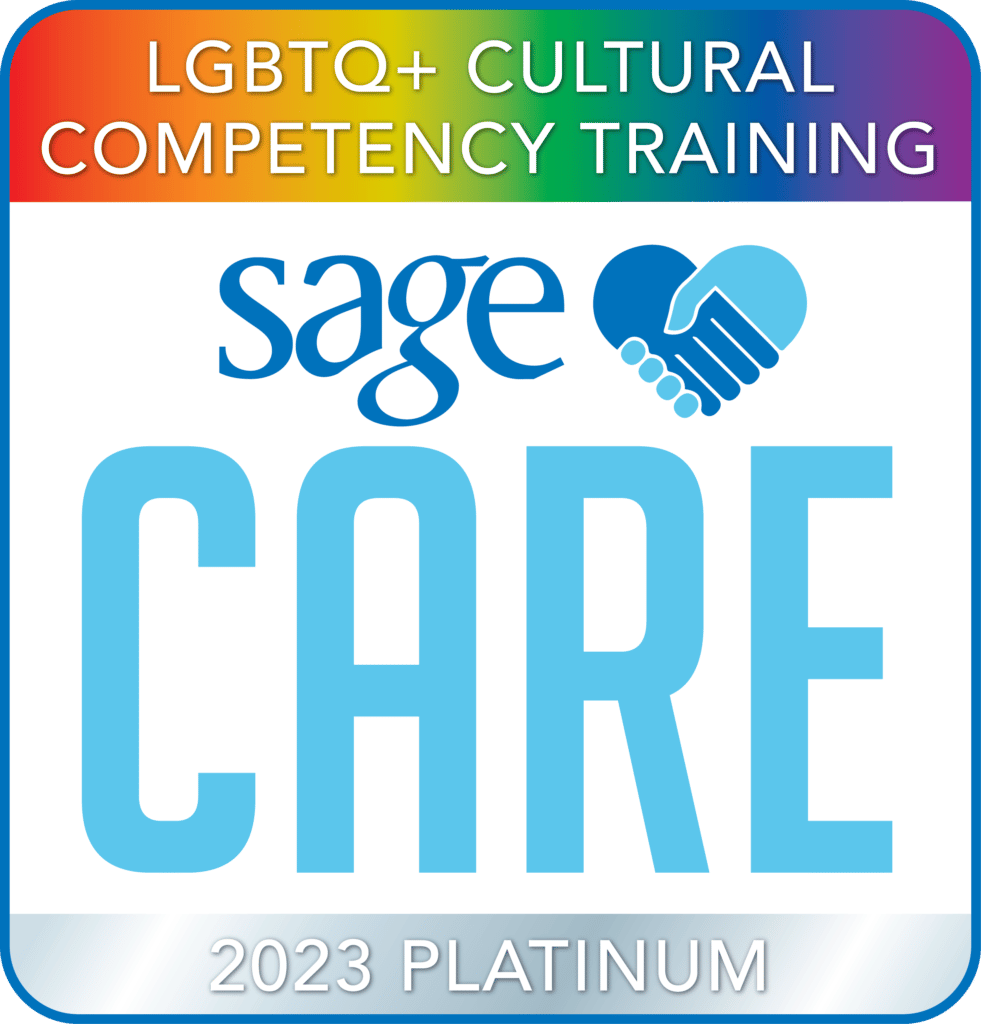Senior Skin Care: Common Issues and How to Treat Them

Winter is here, which means dry skin is, too… ugh. It may not seem like a big deal, but when your skin goes untreated, not-so-pleasant issues can pop up. As we age, our skin naturally loses fat, elasticity, and moisture – making it more susceptible to skin infections. In this article, we will address a few of the most common skin problems for seniors and how to best treat them.
Easy bruising
Even the most minor scrape could cause a serious-looking bruise for older adults. This propensity for injury is due to the natural loss of fat in the skin as we age. With less fat, there is less cushion to “soften the blow” of impact. Seniors who take blood thinners or over-the-counter pain medications are also at a higher risk of bruising more easily.
Treatment for bruises:
- Apply a cold compress:20 minutes on the bruise, followed by 20 minutes off. Rinse and repeat this process as necessary. If the bruised area is on the leg or foot, keep it elevated.
- Apply a vitamin-rich skin cream like Dermaka to the bruised area.
Age spots
After years and years of sun exposure, some evidence of that is sure to show up on our skin. Unfortunately, it is not always in the form of a nice summer tan. Flat tan or dark brown spots typically begin to pop up in the places most exposed to the sun, like the face, arms, and back of the hands. Luckily, age spots are harmless for the most part, but here is what you should do if you have some:
Treatment for age spots:
- Get age spots checked out by a dermatologist to ensure they are just age spots and not something more serious like skin cancer.
- Make a habit of wearing sunscreen with at least 30 SPF to prevent more age spots from popping up. Many facial moisturizers now include SPF, so try to use one daily.
Dry, itchy skin
Did you know that more than half of seniors have dry skin? As we mentioned earlier, this has a lot to do with the natural loss of moisture that comes with aging.Cold, winter weather conditions often exacerbate dryness. Severe dryness is also a side effect of medications that treat some chronic health conditions in older adults, like diabetes and kidney disease. Depending on the root reason for your dry, itchy skin, there are fortunately ways to treat it.
Treatment of dry/itchy skin:
- Use a moisturizing cream daily. We recommend CeraVe or Cetaphil.
- Make a habit of drinking more water throughout the day.
- Run a humidifier while you sleep.
- Use a moisturizing soap in the shower or bath instead of a deodorizing soap.
- If symptoms do not subside, see a doctor, as this could be a sign of something more serious like thyroid or liver disease.
Treating seniors at our assisted living community in Camden County
Our associates at United Methodist Communities at Collingswood understand how susceptible seniors could be to skin issues and keep an extra eye on them during the harsh winter months. Checking our senior residents for skin conditions and treating them falls into our personal care services in assisted living. After working with older adults for many years, our associates can detect common senior skin conditions early and recommend the best treatment based on each resident’s specific medical history and needs.
For more information about our senior support services in Camden County, call us today or visit our website at: https://umcommunities.org/collingswood/




